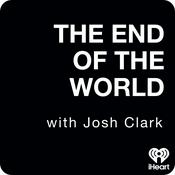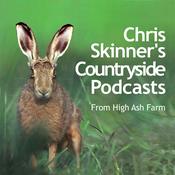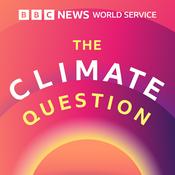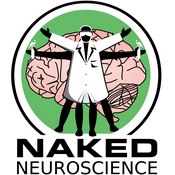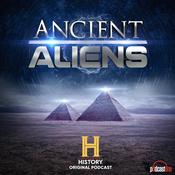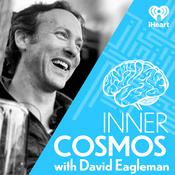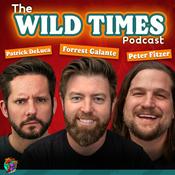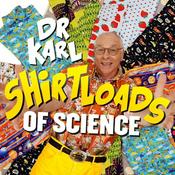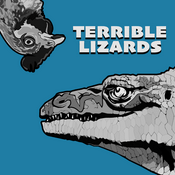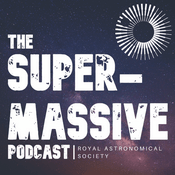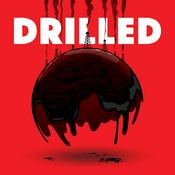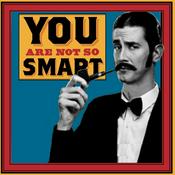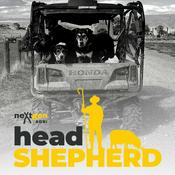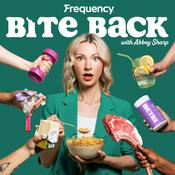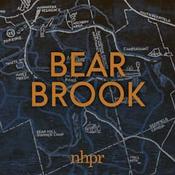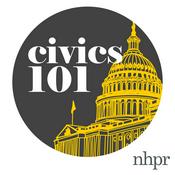379 episodes
- A few weeks ago, Nate gathered a group of storytellers in front of a live audience in Portsmouth, N.H. to celebrate 10 years of Outside/In. From goats to ghosts and ill-fated coloring book pages, this motley crew of storytellers explored the theme of metamorphosis in a changing world.
If you’ve got a special moment or episode from Outside/In’s long history, we’d love to hear about it. Send us a note at [email protected].
Featuring Gretchen Legler, Kianny Antigua, Sara Lamagna, Jake Lewis, Aubrey Nelson, Dave Anderson
Produced by Taylor Quimby and Zoë Mitchell. For full credits and transcript, visit outsideinradio.org.
SUPPORT
Outside/In is made possible with listener support. Click here to become a sustaining member of Outside/In.
Follow Outside/In on Instagram or join our private discussion group on Facebook.
LINKS
Check out Gretchen Legler’s blog, where she writes about all sorts of nature and farm-inspired subjects, here.
More on the work of Kianny Antigua can be found on her website.
Listen to Sarah Lamagna’s interview for a previous episode of Outside/In, where she and Taylor talk about tricking kids into loving hiking.
Interested in learning more about Aubrey Nelson's call for "more purposeful, real-world education?" You can contact her "Ecosystem of Educationeers" via this form.
Listen to more musings from naturalist Dave Anderson on NHPR’s Something Wild.
If you want to hear more of Nate’s music, check out “Snoweater on Bandcamp.
Learn more about your ad choices. Visit megaphone.fm/adchoices - Ravens get a bad rap in western culture. They’re an ominous symbol of death, considered “unclean” by the bible, and star in Edgar Allen Poe’s haunting gothic poem, “The Raven.” A group of ravens is called an “unkindness.” What a burn.
But host Nate Hegyi is on a mission to show that we should give the raven a bit more credit. It’s one of the most intelligent creatures on earth — an animal that can use tools like a chimpanzee, speak like a parrot, do tricks like a dog, and investigate murders like Sherlock Holmes.
So today on the show, another edition of our ongoing series, Holy Scat: raven edition.
Featuring Sophie Nilles and Will Geiger.
Produced by Nate Hegyi. For a transcript and full list of credits, go to outsideinradio.org.
SUPPORT
Outside/In is made possible with listener support. Click here to become a sustaining member of Outside/In.
Follow Outside/In on Instagram or join our private discussion group on Facebook.
LINKS
Dr. Kaeli Swift is one of the foremost corvid researchers on the planet, and she’s done a deep dive into corvid funerals.
Here’s the study that shows ravens parallel great apes in terms of intelligence.
If you want a real creepy experience, you should watch Vincent Price recite Edgar Allen Poe’s ‘The Raven.’
Need more raven stories from southeast Alaska? The Sealaska Heritage Institute just published a collection.
Learn more about your ad choices. Visit megaphone.fm/adchoices - After the Irish fought for and won their independence from the British in 1921, they had a problem. Centuries of exploitation had left the island one of the least forested nations in Europe, with less than 2% tree cover.
So, they started planting a non-native American tree: fast-growing Sitka spruce capable of rebuilding their timber resources in record time. And it worked. Today, about 17% of the island is forested. But in the rural areas where iconic rolling hills have been replaced by rows and rows of conifers, farmers are not happy.
Outside/In host Nate Hegyi takes us to County Leitrim, an area of Ireland hit hard by the Troubles and the Great Famine, to meet the townspeople who are fighting what they say is a new wave of colonialism: Sitka spruce plantations.
Featuring Justin Warnock, Brian Smyth, Donal Magner, Liam Byrne and Jodie Asselin.
This episode originally aired in March 2025.
Produced by Nate Hegyi. For a transcript and full list of credits, go to outsideinradio.org.
SUPPORT
Outside/In is made possible with listener support. Click here to become a sustaining member of Outside/In.
Follow Outside/In on Instagram or join our private discussion group on Facebook.
LINKS
Donal Magner wrote a book covering the history of Ireland’s forests and timber industry.
Sitka spruce plantations are controversial in other parts of Ireland as well, including Cork.
There are also efforts to rewild parts of Ireland with entirely native trees and to protect and restore carbon-sequestering bogs.
It can be really tough to figure out exactly what was growing in Ireland thousands of years ago – but these scientists used ancient pollen counts to figure it out.
Researchers at University College Dublin produced a detailed socio-economic impact report on Sitka spruce plantations and County Leitrim in 2019.
Learn more about your ad choices. Visit megaphone.fm/adchoices - A New Hampshire town finds out its water has been contaminated by a chemical. The most basic question — whether the water is safe to drink — doesn’t have a clear answer. Nobody seems to know much about this so-called forever chemical, which is weird… because all of this has all happened before.
From the Document team at New Hampshire Public Radio, Safe to Drink is a four-part series about a water contamination story that keeps repeating in town after town — and about the people who fought for answers through a maze of chemistry, regulations, and illnesses.
You can binge the whole series now: subscribe to Safe to Drink on Apple Podcasts, or check out their page on NHPR’s website.
Reported by Mara Hoplamazian. For full credits and transcript, visit outsideinradio.org.
SUPPORT
Celebrate our 10th anniversary with us! Join the Outside/In team for Stories from Outside on Friday, Feb. 6, at 7 p.m. at 3S Artspace in Portsmouth. Tickets are available here.
Outside/In is made possible with listener support. Click here to become a sustaining member of Outside/In.
Follow Outside/In on Instagram or join our private discussion group on Facebook.
Learn more about your ad choices. Visit megaphone.fm/adchoices - Last week, we talked about the ethics and regulations around sending private citizens to space, but one thing we didn’t linger on much was the lasting impact of Christa McAuliffe; the teacher slated to become the first private citizen to space before she was killed in the Challenger disaster.
So today, we’ve got a series of stories and interviews that are all part of NHPR’s series “Remembering Christa: 40 Years After the Challenger.”
We’ll hear from a local journalist that covered her story, the students she mentored, and the community charged with remembering her legacy.
Produced by Patrick McNameeKing. For full credits and transcript, visit outsideinradio.org.
SUPPORT
Grab a ticket for our 10 year anniversary live show here!
Outside/In is made possible with listener support. Click here to become a sustaining member of Outside/In.
Follow Outside/In on Instagram or join our private discussion group on Facebook.
Learn more about your ad choices. Visit megaphone.fm/adchoices
More Science podcasts
Trending Science podcasts
About Outside/In
Outside/In: Where curiosity and the natural world collide.
Look around, and you’ll find everything is connected to the natural world. At Outside/In, we explore that idea with boundless curiosity. We report from disaster zones, pickleball courts, and dog sled kennels, and talk about policy, pop culture, science, and everything in between. From the backcountry to your backyard, we tell stories that expand the boundaries of environmental journalism.
Outside/In is a production of NHPR. Learn more at outsideinradio.org
Podcast websiteListen to Outside/In, Ologies with Alie Ward and many other podcasts from around the world with the radio.net app
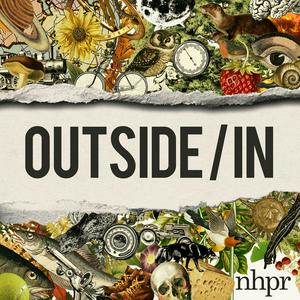
Get the free radio.net app
- Stations and podcasts to bookmark
- Stream via Wi-Fi or Bluetooth
- Supports Carplay & Android Auto
- Many other app features
Get the free radio.net app
- Stations and podcasts to bookmark
- Stream via Wi-Fi or Bluetooth
- Supports Carplay & Android Auto
- Many other app features


Outside/In
Scan code,
download the app,
start listening.
download the app,
start listening.












